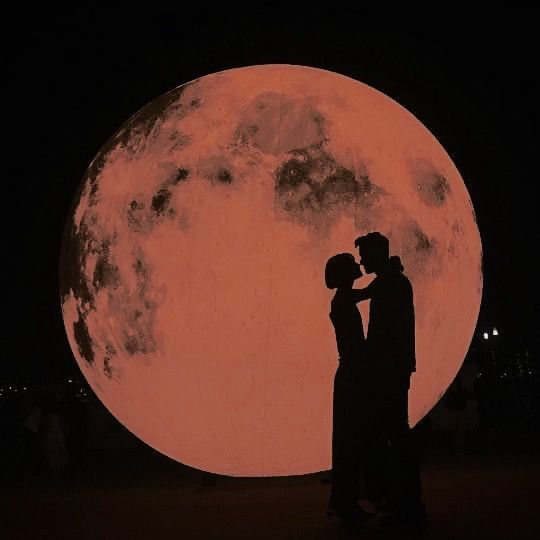[ad_1]
The French philosopher François de La Rochefoucauld characteristically remarks that “there are people who would never have fallen in love if they had not heard of such a thing”. I must admit that this very statement shocked the hopeless romantic in me: because in fact, how much of the love we see around us is pure? And even in case of pure love, is it a lasting state? Are we even conditioned to love?
Existence precedes romance, or does it?
The great minds of philosophy have long debated whether existence precedes essence: do we come into the world with a predetermined essence, a core of who we are, or do we first experience of life before we can create our meaning? Well, my question is a little different: does existence precede love?

I can’t help but wonder if we are born with an inherent tendency in our nature to seek love, or if love might be taught. Is love a prerequisite for human existence or is it the key to societal belonging and validation? In other words, could it be that love is just a social construct?
Is love a rational decision?
We tend to think of love in terms of overwhelming emotion, like that all-consuming feeling that goes beyond the realm of the rational mind. Even in our languages, we rarely refer to love in literal terms. No one will claim to have “decided to love”, but rather to have “fallen in love”. Nor do we offer concrete reasons for our love; we prefer to attribute it only to “that certain feeling”. Yet, how irrational is our love really?
There is this feeling of typicality in romantic relationships: to declare love is to assume the “duties” of a loved one. And, for such a supposedly irrational force, there’s this structural element to how people form romantic relationships. Even the concept of “dates”, of planned weekly outings, while in a romantic relationship itself a “typicality”, common to almost all romantic relationships.

This leads me to wonder if love is a social construct that preserves reproduction and social order. Love marriage birthers and marriage birthers family. The family is a structural pillar that orders the functioning of society. Therefore, we might even go on to say that our society is structurally based on love. At least unconsciously, we choose love on a social level, in the sense that love and amorous attachment are seen as integral not only to satisfying one’s sexual needs (which involves the innate element) , but also of societal existence. This societal and structural element of love can only mean that, to some degree, we think of love in rational terms, in terms of societal expectations and existence.
Love outside the context of a relationship
We often see romantic relationships as the ultimate expression of love. However, could it be that relationships are just another element of rationality, a kind of formal structure of love? In reality, the structure of a relationship is more rigid, more “typical” than we like to imagine. By entering into a romantic relationship, we make a formal commitment of love, time, and affection to another person. In other words, we tame the feeling of love in a formal structure.

And that’s not to say that structure in a relationship is a remotely bad thing. Whether we like to accept it or not, once the spark from the beginning has died down, we need to integrate the other person into our daily lives, and the intimacy of doing is arguably more romantic than not. any grand gesture. However, how willing are we to recognize the formality of our romantic relationships? Admit to yourself that it is time to combine rationality and feeling: consciously accepting another person into the structure of your life. We try as long and as hard as possible to remain ignorant of the structural and practical elements of love.
Our ignorant denial of the social and structural elements of love is even more evident in how we perceive love outside of the typical relationship context. We do not view love outside of the traditional relationship as viable or enduring. We like to think of people who claim to love people they’ve never had in serious relationships with hopeless romantics, or, if we’ve grown more cynical, ridiculous and absurd. We only think of love in terms of a typical relationship, which only accentuates the idea that love is more rational, more of a social construct than we like to think.
To love or to be loved?
Understanding the reality behind love comes down to asking one question: why do we seek love in the first place? It is from here that we come to the question of whether we can ever truly love someone. Can we put our selfishness aside and give it all to someone? Can we love selflessly and unconditionally?
In my opinion, we seek love because it makes us lovable. We want to see ourselves through the eyes of someone who can love us, because we are so incapable of loving ourselves. We want to be painted ideal, to be seen by someone without the flaws we fear we have. Could it be that the pursuit of love is not that of a person, but that of love itself? We seek insight into ourselves that we know is behind, but we are afraid to dive into. We love to be loved.
Don’t get me wrong, that doesn’t mean love can’t be beautiful, or pure, or unconditional, for that matter. But there is more than that. We don’t love for fun. Like we don’t do anything for fun.
What I mean is that everyone seems to share this vain desire to be loved. Through the heart’s greatest wound, our weakest moments, we all seek the comfort of each other’s arms. Baffled by what I can only call reprimanding innocence, we assume it’s possible that another’s love is the glue that can mend the broken pieces together. However, this naive desire of the soul seems to ignore the reality of the loneliness of human nature. We are born alone. We die alone. But loneliness is not a bad thing. Nature knows best. We were born sorry for a reason. Because it is with our own tears that we free ourselves best from the barriers within. It is with our own touch that we better wipe those same tears from our face. Only our own mind understands how we feel and it is in our own thoughts that we can seek the comfort we ultimately need. And most undoubtedly, it is in our own body, where we find our home.

This article is not to say that true love does not exist. On the contrary, all I try to do is to see love more for what it is. We have somehow come to view the rationality and practicality of love as a “taboo.” However, to be happy in love, it is necessary to be conscious of it in its totality. By completely reducing love to an irrational sensation, we give up control over it. To embrace rationality in love is to assert one’s power over one’s destiny, to make one’s voice heard in the story of one’s life.
